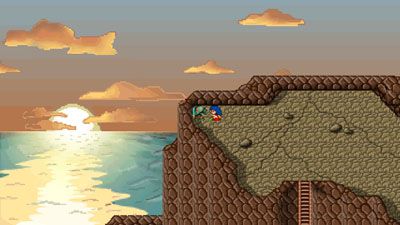marfig said:
I'm not sure how the Apple Store handles indie game developers (or indie developers in general, for that matter). But I wouldn't be surprised if they were doing a better job.
Given that the top content on the App Store is consistently games, many from indie developers just starting out, I'd have to say that's likely to be the case. And look where it has gotten Apple... the App Store turned out to become a
major success. And again, it's also proven to be a major success for Valve with its Steam platform.
marfig said:
On the other hand, an online shop investment on indie gaming may disturb those juicy AAA deals these providers have with publishers
Bingo, that does seem to be a major potential bottleneck.
marfig said:
Still, it takes the user being a regular to gaming news sites to learn about these games and then go search for them on their PS or Xbox gatekeeper.
I am not 100% sold on the idea, but it does raise a couple of questions. The fact that Apple's App Store is mind-blowingly popular has to be an indicator of something, and
most games there are not titles that people usually read about on gaming sites first. Angry Birds, for example, wasn't really talked about before it become uber-popular. Enough people bought it and enjoyed it to sky-rocket it up the list, and then people really started to take notice.
One major problem for a lot of indie developers is that they A) Don't have the time to do marketing for the game, because it
is time-consuming, and B) Don't have the money to do it themselves (entry-level PR effectiveness could start off at $500/mo), so it's a super-tough situation. How are gaming sites going to know about these games?
Minecraft is a bit of an exception. It's not often at all when an indie game catches my attention, but Minecraft did (I was one of the first 10,000 people to purchase the game!), so what did
it do right that others did not? I guess one thing is that it was different, and unique. It wasn't backed by a popular developer, but rather a single guy. He struck the correct mixture of what it is gamers would like. Even Notch himself didn't expect this kind of reaction to the game, but for many reasons, it's well-deserved. It's not only a game that sells like hotcakes, but it's a game that needs -no- marketing due to the incredible word of mouth.
For an indie developer, this kind of thing is not easy to replicate, even if you know you have a winner on your hands.
Whew, did I just go on a tangent or what?
I agree with you on almost all points marfig wholeheartedly. I can tell you one thing though, I'm confident it's not only indie game devs that have this sort of battle on their hands, but I am sure other software developers are constantly fighting a similar battle. Though it could be argued that it's much easier to be seen on the Internet than through the clunky Xbox Live interface.
I just started studying XNA. I downloaded XNA game studio last night. It makes things easier for individuals or small companies wanting to develop for the PC or XBox360. I'm not expecting to make a living off it. I would like to create a fun, interesting, and immersive game, though. Haven't entirely decided on using XNA yet. I'll hold off on making a decision until I've finished reading the book I just started.
I have heard mixed reactions about developing through XNA, so I'm interested into your thoughts once you get going.


